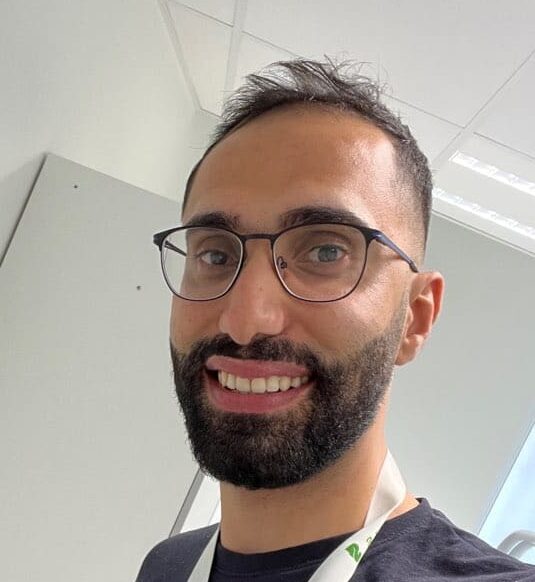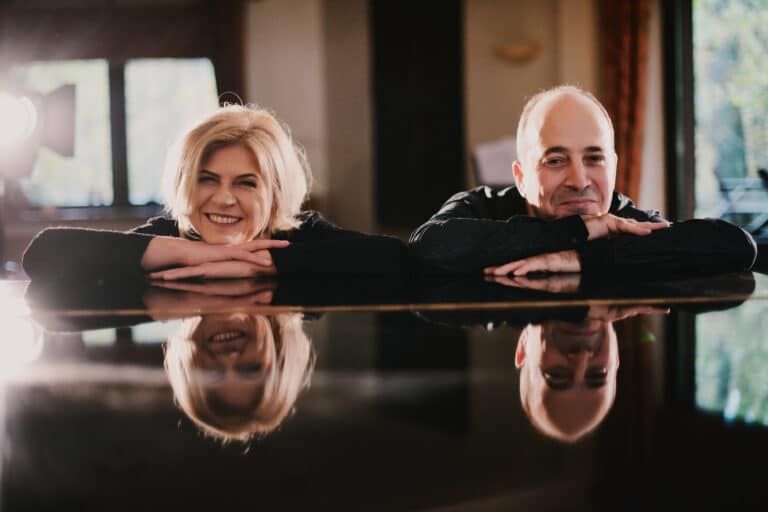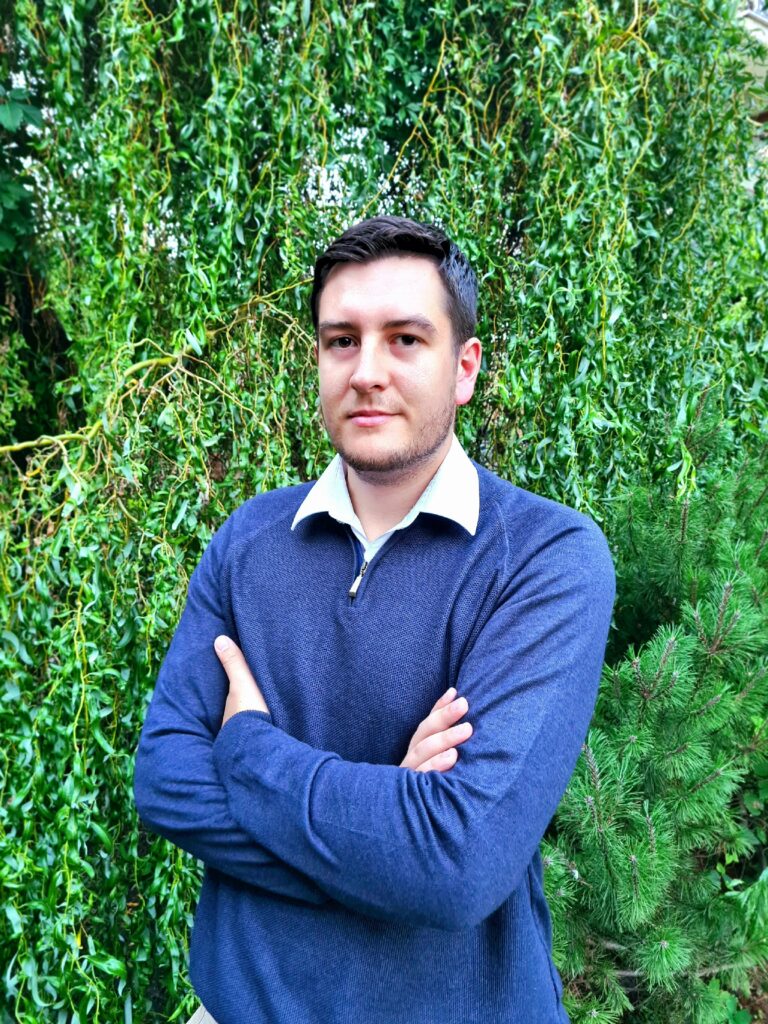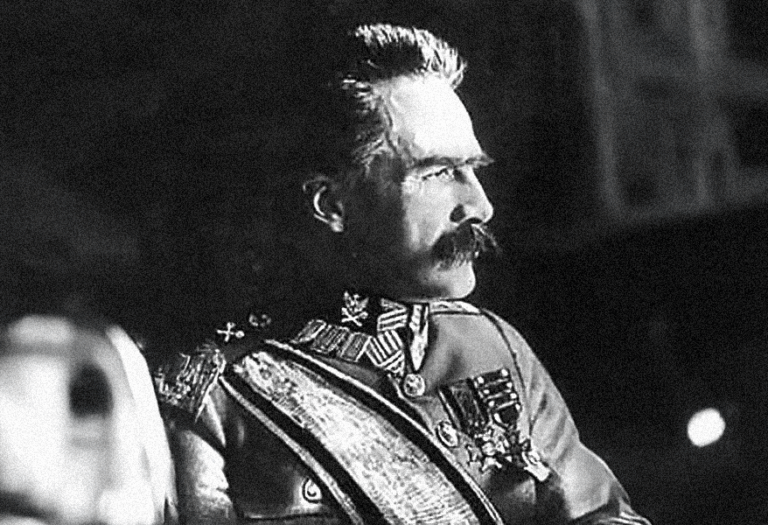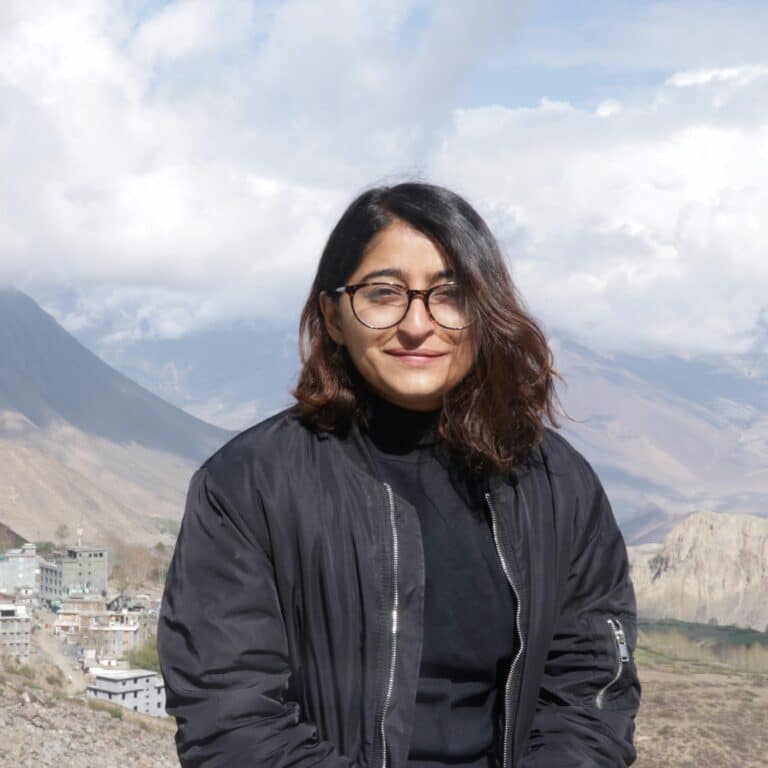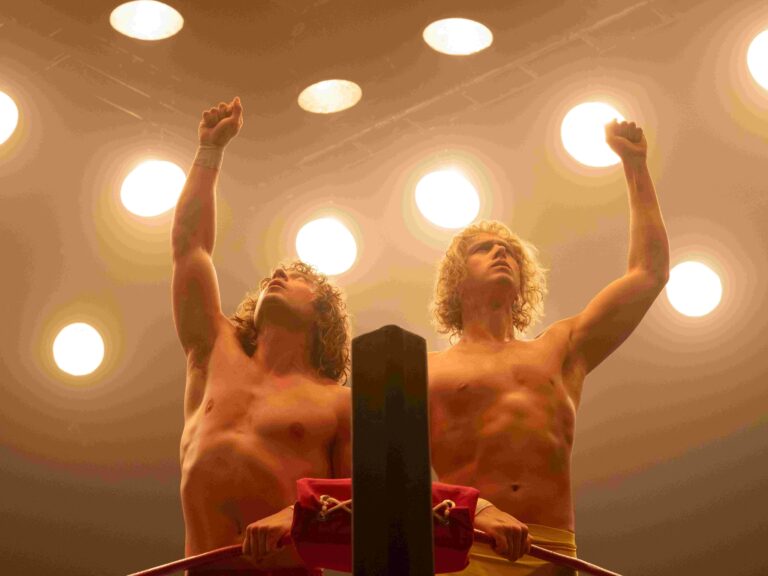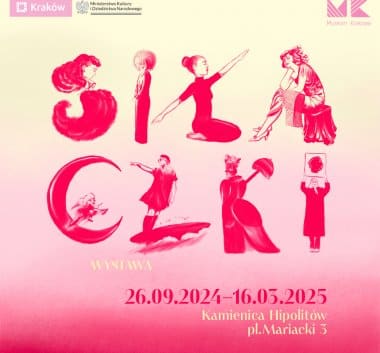PRESCRIPTION FOR HAPPINESS
Muthana Hanaysheh is a Palestinian pediatrician based in Warsaw, who has been living in Poland for 11 years. He works in a children’s hospital and has his own private practice. Every free moment he spends with his close ones – beloved wife, almost 1 year old daughter and friends. He managed to meet for an interview thanks to a quiet moment during the evening patients’ duty at the hospital.
Why did you come to Poland?
I finished high school back home with honors and I had the possibility to study anywhere I wanted. I chose medicine and I was thinking about going abroad. A friend of mine, who studied medicine here in Wrocław, said that, compared to other countries, the academic level of medical studies in Poland is exceptional, the quality of life fantastic and the cost of living totally affordable. That recommendation was sufficient for me. I had to learn Polish first though, so at the beginning I went to study the language at the Polish Language Centre for Foreigners at the University of Łódź. After 8 months I passed all the necessary exams – Polish language written and oral, as well as the subjects required to study at the university – physics, chemistry and biology in Polish (kind of a Polish matura, but for the foreigners).
Where did you study medicine?
Again, I had great results on my exams here, so I was able to choose from every medical school in Poland. Initially, I chose the Medical University of Warsaw, but I came to Poland with a friend and he didn’t score that well on his exams. He was only able to get to Katowice. After moving to Warsaw for 3 summer months I decided that I will join him to study there. I applied and got the spot – as it turned out the only one available for foreigners! So, ironically my friend fell out and eventually studied in Lublin.
Are you still friends?
Oh, yes – great friends in fact! We both still find this story funny and we stay in touch. He’s specializing in neurological surgery in Opole now. He’s a genius.
You didn’t stay in Katowice after studies…
Warsaw offered more possibilities, more potential. I moved right after university. My heart is still kind of attached to Silesia because of the great time I had there and all the friendships I found, which continue till this day. But I love Warsaw very much. And it’s a beautiful city.
Did you get married in Poland?
Yes. When I was planning to study in Warsaw and I lived here in the summer, I rented a room from a wonderful old lady, whom I still stay in touch with, still visit and even call her Babcia, which is Polish for Grandma. She is one of my favorite people! Naturally, when I moved here from Katowice, we stayed in touch. I visited her often and that’s where I met my wife. She was renting a room from Babcia at the time, also studying to become a midwife. That was the beginning of my family. We got married and almost a year ago we welcomed our beautiful baby daughter. But I stayed in Poland not just for personal reasons. I really feel good here as a professional.
How so?
I have a lot of development opportunities. Polish healthcare really is at a high level. Poles complain about it a lot and I realize that it’s an issue and a constant subject in a public debate, but I have friends working for example in the UK, the USA or Arabic countries and it doesn’t look so great up there. Compared to countries that may seem better in this regard, Poland really turns out to be top tier.
Do you visit home sometimes?
So far, twice – during the summer break after the first year of studies and then after graduating. I have 3 sisters and 2 brothers – they all live in Palestine. I’m the only one abroad. We video-call every day.
You speak and think in Polish, you have a family here and seem very grounded in this country and culture…
Of course, it happened gradually. At the beginning I felt very much like a foreigner, especially during winters with all the snow. It was depressing for me at times. And even though since the beginning I connected with people very well, I felt I was different. But it’s something to be expected and it can be a really good thing, depending on your mindset. What’s more, Poles really appreciate if someone’s communicating in their language – it’s the ultimate ice-breaker. I also had to switch to an entirely different cuisine – now instead of rice I eat potatoes. /laugh/ And I miss the sun.
The Israeli-Palestinian conflict has been so polarizing for societies all over the world. Have you experienced this duality in Poland?
Honestly, it’s like with any other subject. Some Poles don’t know Polish politics very well, yet still take sides, all the more in regard to Israel and Palestine. It probably depends on who you know and who is your friend. Personally, I experience sympathy, but there have been some less pleasant situations. Once, I had a patient whose father asked me where I was from and then clearly stated his support for Israel. As the consultation continued, he became more and more aggressive and to be exact – verbally abusive. He finished with disinviting me from Poland.
Did you get the chance to treat the sick child?
Yes.
Your patients’ parents emphasize your cordiality and kindness, and in your personal life you establish very warm relationships. Do you find Poles’ attitude to be similar to the Middle-Eastern?
Absolutely, they are very warm, open and kind. My God, my best friends are all Polish! We speak every day, even though they live in Płock, Ruda Śląska and Inowrocław. We look different, we are of different religions, we come from different cultures and they are like brothers to me. Palestinians are all about community, we live very close to each other and I happen to find my very own, beautiful community here.

